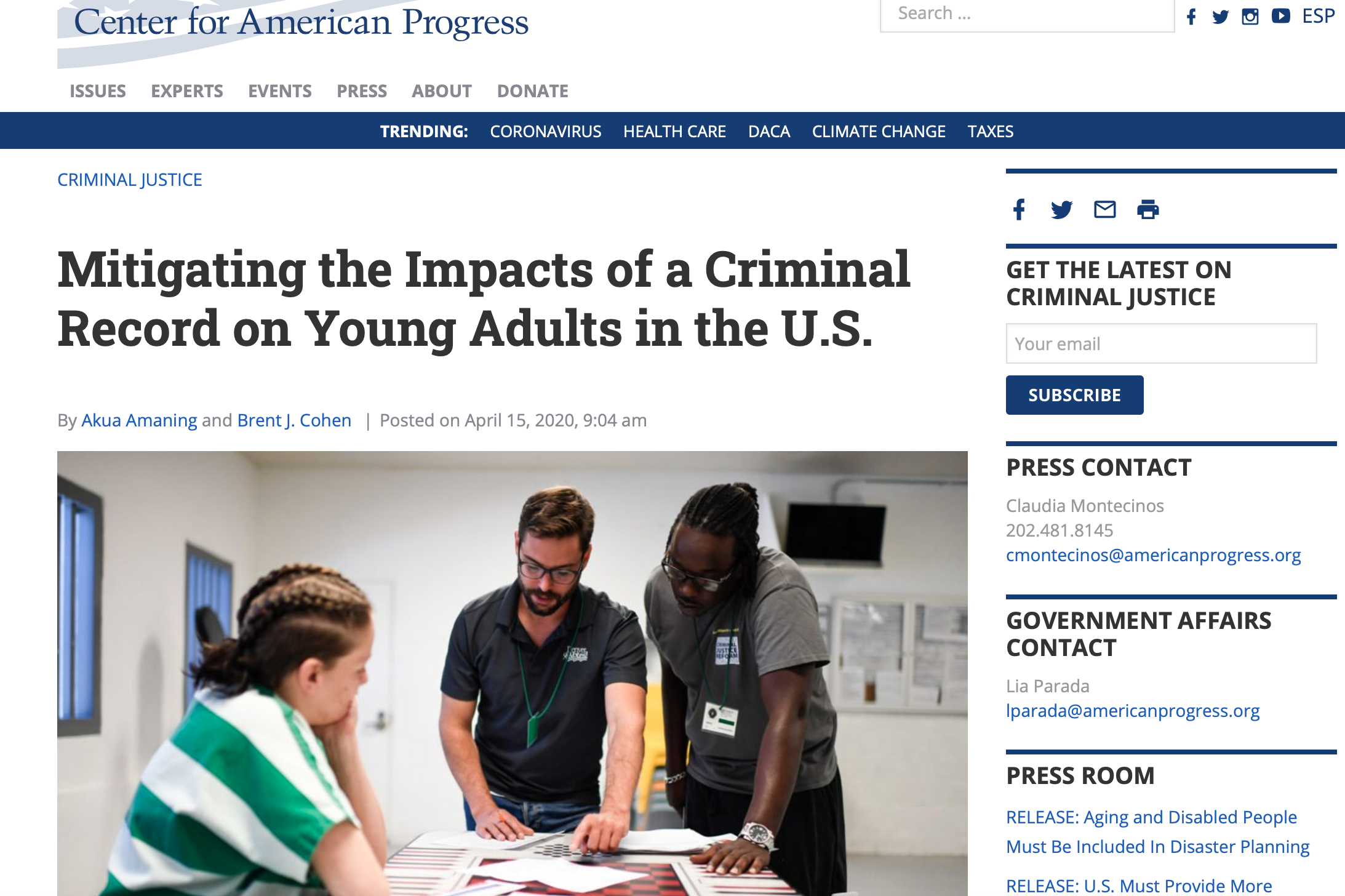As the home of the first juvenile court in America, Illinois is also among the leaders in emerging adult justice reform, a burgeoning field that focuses on system-involved youth at a distinct developmental stage, from ages 18 to 25. A new Justice Lab report, Emerging Adult Justice in Illinois: Towards an Age-Appropriate Approach, found that the current justice system—which automatically prosecutes and sentences all emerging adults in the adult criminal justice system—generates remarkably poor results in terms of youth outcomes, racial and socio-economic equity, and public safety.
Authored by Selen Siringil Perker, Lael Chester, and Vincent Schiraldi, the report highlights that emerging adults are overrepresented in Illinois’ criminal justice system, primarily for nonviolent and minor offenses, and bear the brunt of the worst systemic racial disparities.
Emerging adults comprised 10 percent of the general population in Illinois, yet accounted for 34 percent of total arrests and 28 percent of individuals sentenced to incarceration in Illinois state prisons in 2013.
Of those emerging adults admitted to state prisons in 2013, 73 percent were incarcerated for non-violent offenses.
Over a third of youth ages 18-21 admitted to the Cook County Jail in 2017—2,252 young people—were charged with misdemeanors or other petty offenses.
African American emerging adults are incarcerated at a rate 9.4 times greater than their white peers in Illinois. Illinois has one of the highest incarceration rates of African American emerging adults in the country, three times higher than New York and 2.5 times higher than California.
Nationally, 3 out of 4 emerging adults released from incarceration are rearrested within 3 years. These poor public safety outcomes are exacerbated by significant barriers to reentry, such as a growing prevalence of substance use disorders and homelessness among this age group.
As the Justice Lab report shows, Illinois policymakers and justice leaders have already begun to experiment with policies and practices that treat emerging adults in a developmentally appropriate manner. These include, for example, a new “Young Adult Restorative Justice Community Court” in North Lawndale and a legislative proposal, filed in the 2018 session of the Illinois legislature, to gradually raise the age of juvenile justice in misdemeanor cases up to age 21. The report concludes that such reform efforts present the state with an opportunity to help system-involved youth become productive members of society and to simultaneously increase public safety and reduce long-term costs to taxpayers.
"It is important to rely on cutting edge research when reforming the criminal justice system," Cook County State's Attorney Kimberly M. Foxx said. "That is why I am grateful for the Columbia University Justice Lab’s report on emerging adults in the criminal justice system. Our office is in review of this report and we look forward to collaborating with them and other stakeholders in the future to address the emerging adult population in Cook County."
Read More











